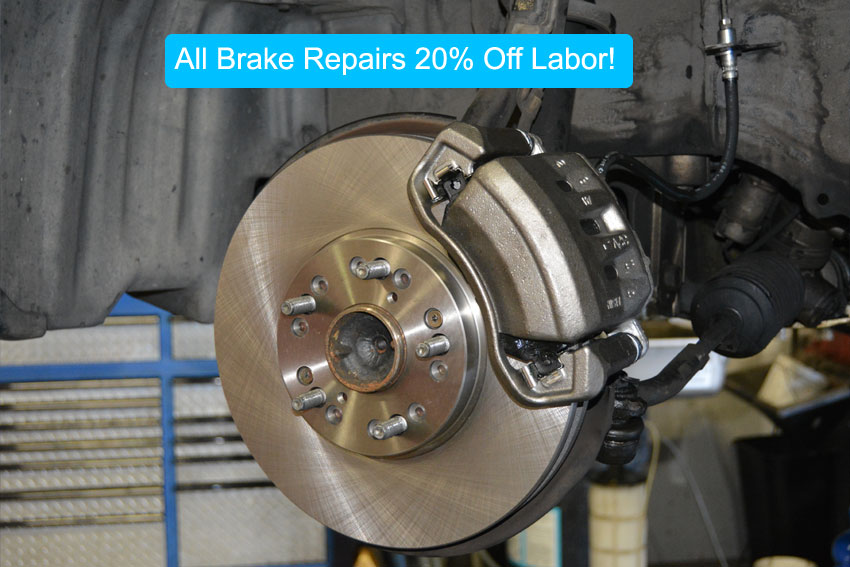
If your brakes feel soft or "mushy", grind, squeal or make the front end shake when stopping, your brakes are showing signs of extreme wear. It's not just annoying... it's potentially dangerous.
The modern automotive brake system has evolved over a period of more than 100 years, becoming increasingly efficient and dependable over time.
A brake system typically consists of a pair of disk brakes in front and disk or drum brakes in the rear. A network of tubes and hoses links the brake at each wheel to the master cylinder which is located in the engine bay. The parking brakes, power brake booster and the anti-lock system are also connected with the brake system.
When you push down on the brake pedal, you are depressing a plunger inside the master cylinder, forcing hydraulic oil (also called brake fluid) through a series of tubes and hoses to the braking unit at each wheel. Fluids, including hydraulic oil, cannot be compressed, so pushing fluid through a hose is just like pushing a steel rod through a pipe. A steel bar couldn't negotiate all the twists and turns between the master cylinder and the brakes, but the fluid will get through just fine, carrying with exactly the same motion and pressure with which it started. It is essential that the fluid be pure liquid and not contain any air bubbles. Unlike fluids, air can be compressed, which will cause a spongy feel to the pedal and severely reduce braking efficiency. If there is air in the system, it has to be bled off, using "bleeder screws" that are located at each wheel cylinder and caliper.